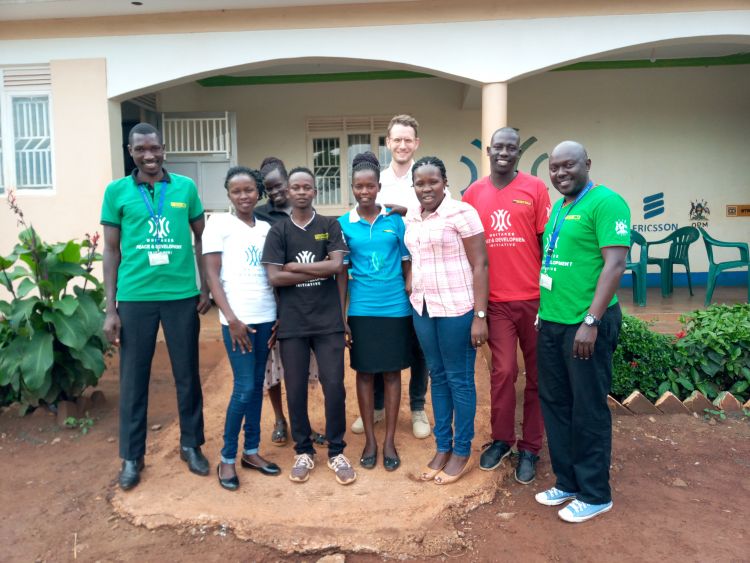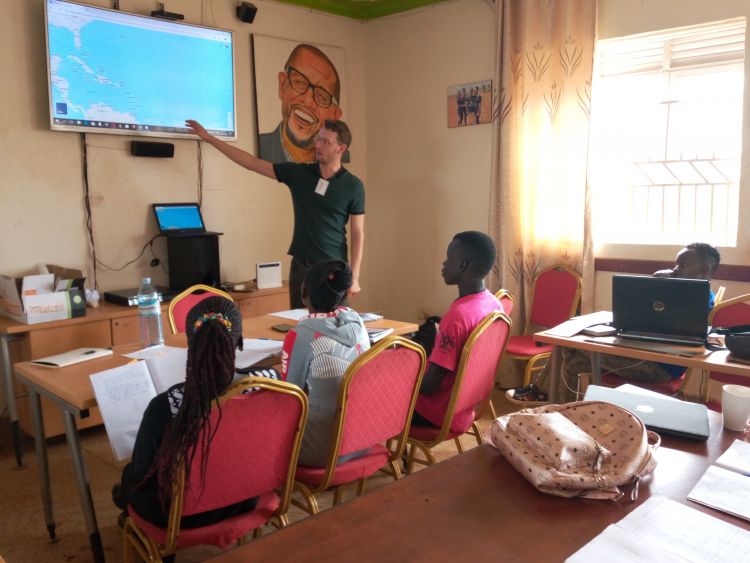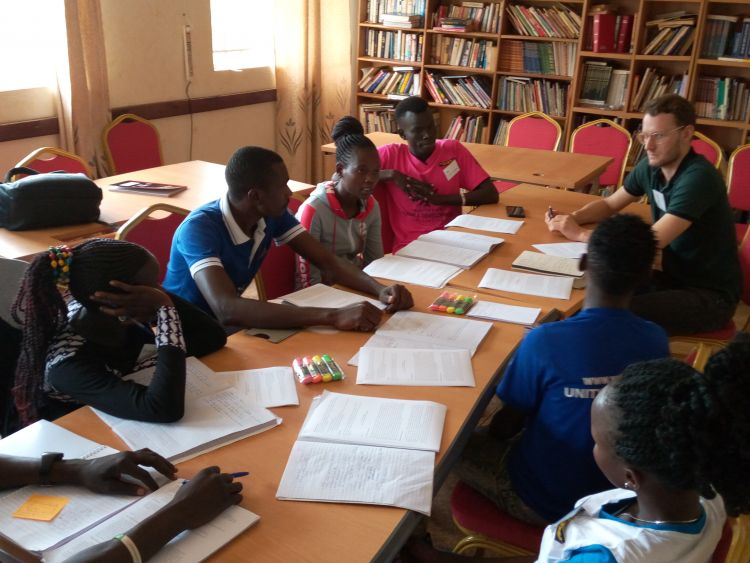September 14, 2020 – In September, for the second year in a row, young refugee women and men sponsored by the Whitaker Peace & Development Initiative (WPDI) at the Kiryandongo Refugee Settlement in Northern Uganda will participate in the program designed by Princeton University’s Global History Lab (GHL), led by Professor Jeremy Adelman, the Henry Charles Lea Professor of History. The aim of the partnership is to draw on the GHL to further our mission of empowering youths by providing young refugees access to university-level knowledge as well as research skills that will help them to contextualize their situations and communicate about them. The renewal and three-year extension of our partnership comes at a critical time when the Global History Lab has been strengthened by the Open Society Foundation, bringing support to young refugees from across the world.

A world program by definition, the GHL will offer the opportunity to 15 young women and men from the Kiryandongo Refugee Settlement to exchange ideas with their peers in many places, including Bangladesh, France, Vietnam, Iraq, Nigeria, and Greece. These exchanges will prove all the more fruitful as the students engage in the research project that crowns the program and that will be feature in a dedicated online GHL platform. Prior to that, they will first travel in time, exploring the history of the modern world since Genghis Khan’s armies conquered China and Baghdad and the plague ravaged cities from Samarkand to Paris. In the meanwhile, they will gain insights on the forces that have shaped globalization for centuries and continue to inform it. This is highly meaningful knowledge for young people whose lives have been marked by cross-border displacement and are often eager to understand the deeper currents that have eventually transformed their own lives. In this light, the GHL is both about the past and the present.

With this project, the youths from Kiryandongo will benefit from a world-class education in a very dynamic hybrid learning environment, which combines online learning and tutoring from doctoral students from Princeton or the Central European University in Vienna. Building on our first experience with the program, it was also decided that this second cohort will be mentored daily by two youths who participated in the first edition of the program in the Settlement and who continue with the program to deepen their research skills and undertake research projects with the GHL.

Beyond academic excellence, the strength of the program precisely lies in its flexibility and the willingness of its leadership and staff to adapt to the complex situations young refugees may face, notably because their plight if often synonymous with the loss of educational opportunities to forced displacement. It is worth stressing that while 1% of refugees attend tertiary education institutions, the world average is 34%. By creating access to higher education for young refugees and by granting them credit for it, the GHL is therefore a genuine platform for youth development and empowerment that fully meets the vision for youth that inspires WPDI.